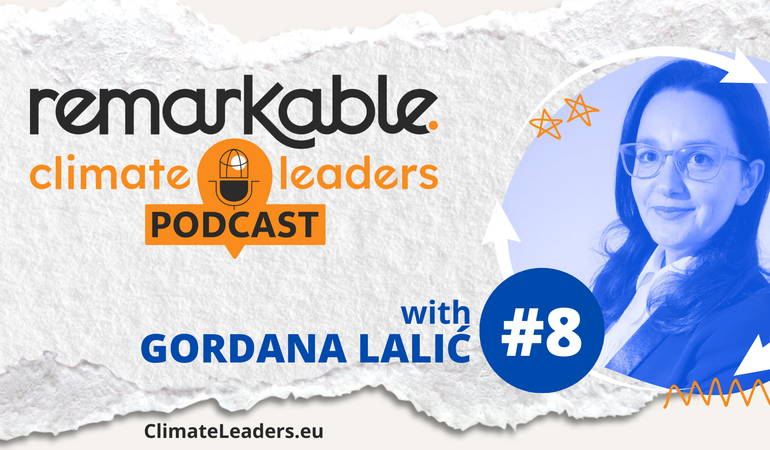Porec Sunny office presented within Remarkable Climate Leaders Podcast
#7 Episode with Gordana Lalić
REMARKABLE Climate Leaders, a HORIZON2020 project has been building new leadership capacity across Europe through a Climate Leadership Programme designed with and for climate leaders.
One of the inspiring stories brought within the Remarkable Climate Leaders Podcast is that of Gordana Lalić, the CEO of the City of Poreč-Parenzo (Croatia) Municipal Company, as she drives climate actions in the picturesque Croatian town of Poreč-Parenzo. Through her leadership, the City of Poreč-Parenzo has opened Poreč Sunny Office, a one-stop-shop for citizens on solar energy, positioning Poreč-Parenzo as a model for climate leadership and helping to shift local community towards a more sustainable, resilient, and participatory energy future.
Listen to the podcast episodes at the link:
Being aware of the facts that:
-citizens are passive bystanders in the energy market
-small scale solar for households is mostly highly reliant on annual government subsidies for solar energy
-energy communities are hardly existent and are rather exception than the rule
in February 2023, City of Poreč-Parenzo, as the first city in Croatia (and broader) has opened Poreč Sunny Office, a one-stop-shop physical place where citizens can receive comprehensive technical/advisory support on solar energy adoption for households, answers to common questions, guidance through the process itself and information on existing government/EU subsidies/grants, completely free of charge.
In addition, the office has organised numerous educational activities/workshops for citizens aimed at raising awareness/understanding of solar energy. In 2024, it is expanding its technical/advisory support to energy communities/citizen energy, educating the public about the benefits of collective energy projects.
Sunny Office serves as a catalyst, helping to shift local community towards a more sustainable, resilient, and participatory energy future. By giving citizens an equal seat at the table, communities have a better chance of responding to the climate emergency, not only in terms of increasing the penetration of renewables/reducing energy consumption, but also by fostering healthy and resilient societies in the light of the climate impacts/related societal challenges.





